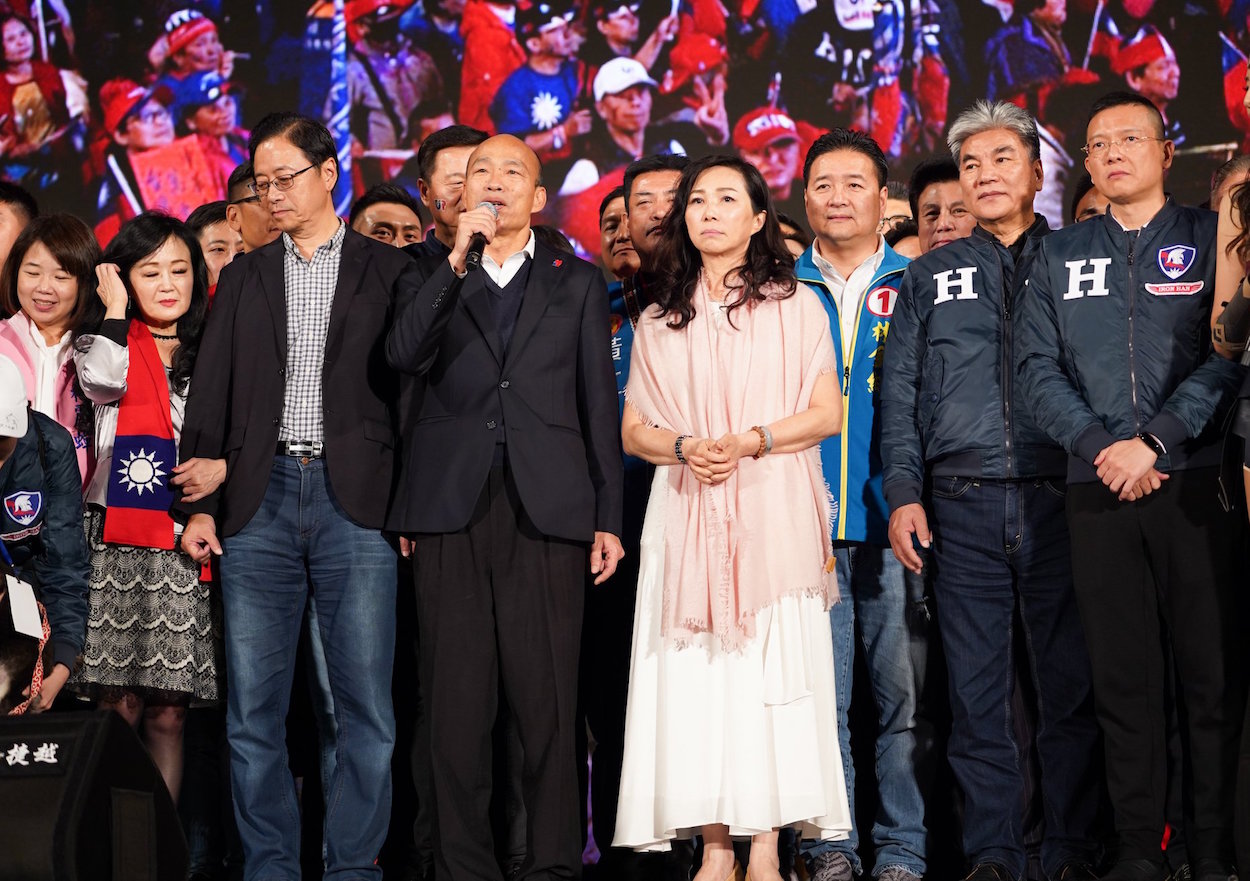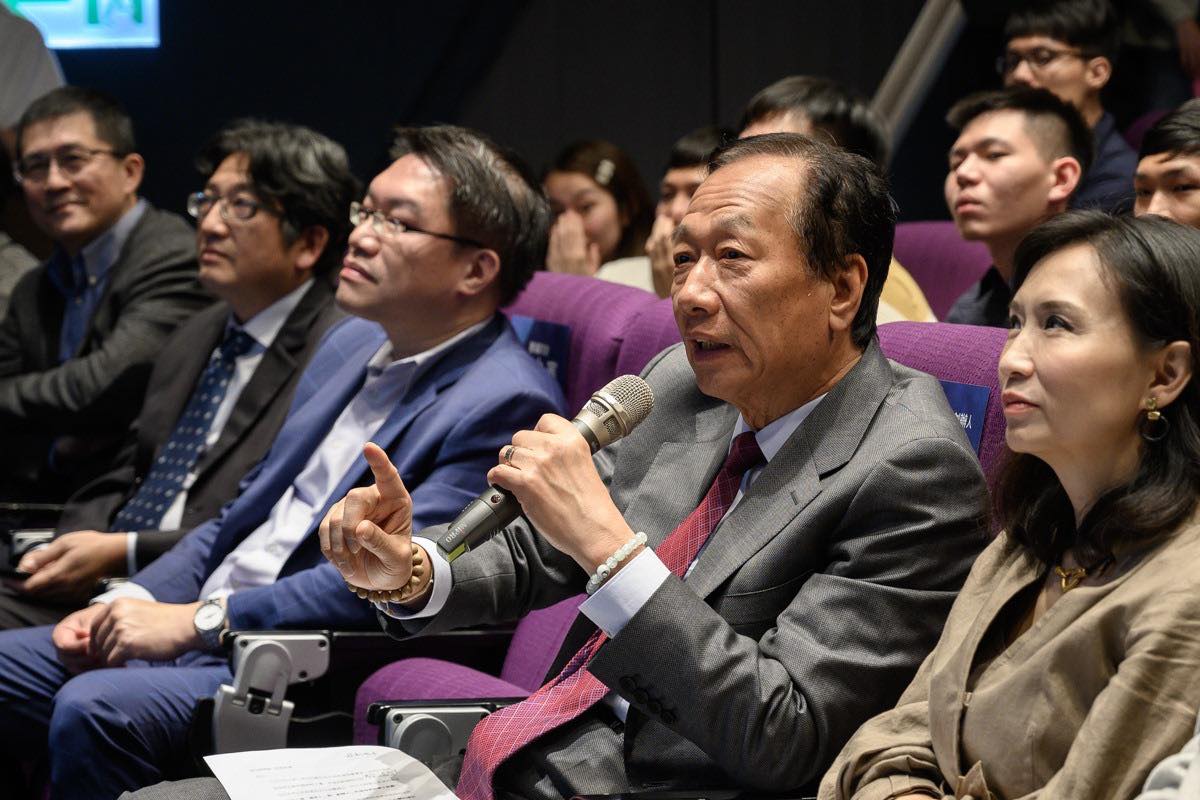by Brian Hioe
語言:
English
Photo Credit: Brian Hioe
THE QUESTION OF who will become the KMT’s next party chair remains opaque, with party heavyweights still refraining from throwing their hat into the race. Wu Den-yih resigned after the results of 2020 elections, as a way of taking responsibility for the KMT’s electoral defeats, as it is traditional in Taiwanese politics for party chairs to do after electoral defeats.
The interim acting chair of the KMT is Lin Rong-te, something that has provoked blowback due to Lin’s business ties to China. In a surprise move, Lin was named acting chair in an emergency meeting of the KMT after Wu’s resignation, although it was previously thought that acting secretary-general William Tseng would oversee operations until a new chair was named. As a result, Lin’s being named acting chair of the KMT has been criticized. Lin has attempted to indicate support for young people taking on more senior positions within the party, however.
 Former KMT presidential candidate and Kaohsiung mayor Han Kuo-yu. Photo credit: Han Kuo-yu/Facebook
Former KMT presidential candidate and Kaohsiung mayor Han Kuo-yu. Photo credit: Han Kuo-yu/Facebook
It is probable that KMT party heavyweights are hoping for the party consensus to concretize around naming them as party chair before openly declaring a bid for the position. Among the names floated so far have been former chairs Eric Chu and Ma Ying-jeou, former Taipei mayoral candidate Sean Lien, Taipei County commissioner Chou Hsi-wei, recent KMT presidential candidate Han Kuo-yu, and FoxConn CEO Terry Gou.
In particular, Eric Chu and Ma Ying-jeou taking up a position as KMT party chair once again would be attempting to signal a return to normalcy for the KMT, this despite that Chu and Ma’s terms as KMT party chair saw periods of heavy blowback against the KMT. In the past year, Chu was unsuccessful in seeking the KMT presidential nomination, though Chu seemed to attract the support of some younger members of the KMT who saw Chu’s milder stances on cross-strait issues as preferable to Terry Gou or Han Kuo-yu.
If Ma, a former president, were to become the KMT’s party chair, this might be taken as a sign of weakness for the party as a whole. Although former presidents usually keep out of the public eye, the KMT’s internal crises in the past years since the end of the Ma administration have led Ma to take up an unusually proactive role for a former president.
An attempt by Sean Lien to become party chair would be an attempt by an individual who was being groomed for power within the party to move up the party ranks. While Lien is currently a member of the KMT’s central standing committee and may still be being groomed for political power in the party, Lien’s rise came to an abrupt stop after his disastrous 2014 mayoral run. However, Lien would be a younger political leader for the KMT, potentially giving the party an opportunity to change its public image.
On the other hand, a successful run by Chou Hsi-wei would likely provoke a great deal of controversy, particularly given Chou’s reputation for starkly pro-China political views. Given internal controversy within the KMT regarding whether its pro-China stances have been alienating of the public after its recent electoral defeats, any bid by Chou for chair is likely to see resistance from younger members of the KMT.
With regards to the possibility of Han Kuo-yu becoming party chair, one notes that Han remains enormously popular among some sectors of the pan-Blue camp and Han would be leveraging on this in order to run for chair. There is the precedent of a failed KMT presidential candidate becoming the party chair, as occurred in 2016 with Hung Hsiu-chu becoming the KMT party chair. But the KMT previously backed away from the notion of Han becoming the party’s leader, in changing party rules so that the presidential candidate of the party would not simultaneously serve as the party chair. In the meantime, Han has publicly demurred on the idea, likely hoping to be approached by the party to become chair—much as how Han initially played coy regarding whether he would put his name forward for the KMT presidential candidacy.
 Terry Gou. Photo credit: Terry Gou/Facebook
Terry Gou. Photo credit: Terry Gou/Facebook
Terry Gou running for party chair would require Gou reentering the party after publicly departing it in the wake of his failed bid for the presidential nomination, hardly the first time that Gou has abruptly entered the party in order to seek a political office. But Gou could prove an attractive candidate, given his strong ties with other pan-Blue parties such as the TPP and PFP, and because of his substantial personal wealth—which could prove an asset for the KMT, given the party’s strapped finances in the wake of the ongoing probe into the KMT’s party assets.
In the meantime, internal contention within the party has broken out, with younger party members calling on the party to change its stance on China and to adjust its relationship with the US. More than one group of younger party members have been among those to call for reform, including individuals affiliated with former KMT Youth League head Lin Jia-xing, who staged a protest outside of KMT party headquarters earlier this month, and a group called “+1”, which includes legislator-elect Hung Meng-kai and current KMT Youth League head Tien Fang-luen. Yet as with previous calls for electoral reform within the party after electoral defeats, such individuals are likely to be accused of secretly being pan-Green turncoats within the party.

